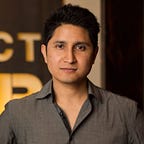This is an excerpt from my latest book Dear Hannah: 70 Methods I Used and Abused to Change Who I Am.
Divide Your To-Dos into Three Boxes: Observe, Analyze, Apply
Date: May 2, 1997
Age: 15
Location: San Diego, CA
Subject: “Observe, Analyze, Apply” Theory
Hi Hannah. How are you not drowning in over-commitment? I’m so stressed, trying to juggle school and extracurriculars, that I feel like I’m on the verge of a meltdown.
I think it has to do with my circle of friends. Every so often, I get together with Chao and company to study, and the phrase, “I’m going to fail” starts going around like a contagious yawn. First someone buries their face in a textbook, then another throws their flash cards into the air, and then I shrug sympathetically, also having little pangs in my heart about failure.
But whereas they’re worried about failing a single exam or class, I worry about missing the big picture. The other day, I couldn’t decide between studying for AP Physics or reading from Bill Gates’ The Road Ahead. On the one hand, studying might help me get into Stanford. On the other hand, reading about Bill Gates might help me become a billionaire. When I tried reading from my AP Physics notebook, my mind would drift to thoughts about having all that money. But when I read from Bill Gates’ book, my mind would drift to fears about getting a 2 out of 5 on the AP Physics exam.
After going back and forth like this for 30 minutes, I shoved both books off my desk. Then I picked up a yellow pad and pencil and set out for the library. When I got there, I just wrote everything down that was on my mind. I made lists upon lists: every activity I was in, every self-help book I wanted to read, and every summer project I wanted to start. After seeing all that jumble of text in front of me, I wracked my head for an hour trying to figure out how to tackle them all. Maybe I could stop playing video games or watching TV. Maybe I just needed to work harder.
I know you would tell me to just relax, but I’ve got to come up with something! There’s always a better way of doing things. So I paced around the table, glancing every now and then at my notepad, when all of a sudden I got an idea. It begins with the question: “What is wisdom?” Well, it’s a form of knowledge. “Okay, then how do we acquire knowledge?” Well, first we perceive something in the world, then we think about it, and then we apply that knowledge to life. Observe, Analyze, and then Apply. That’s all there is to it.
So I ripped out a fresh sheet of paper, divided it into three columns, and sorted all my lists into categories. Reading self-help books went under Observe. Brainstorming for Internet start-up ideas went under Analyze. And studying for school went under Apply. One by one, everything found its place, and I could see that the secret is to be balanced in these three areas.
That’s it. That’s the secret to wisdom. Just divide your time equally among all three: “Observe, Analyze, Apply.” For example, Chao buries himself in flash cards and token extracurriculars, but that’s too much time in the Apply category. Or take the fact that I’ve been “brainstorming” and “planning” for months to start an Internet business. Clearly I’m spending too much time in the Analyze category. And I can’t spend the entire weekend reading Bill Gates’s book when I have AP Tests in a few weeks. That would be — you guessed it — too much time in the Observe category.
Everybody seems to be imbalanced in one area or another. Just split your time accordingly, and you’ll find the fastest path to wisdom.
- Phil
I abandoned this method within two weeks of coming up with it. There is always a temptation, when you’re crowded, to come up with some organizing principle that will make you the most efficient worker possible, like the way new zealots of the “Getting Things Done” movement often sound. These techniques are a symptom, not the solution, to being over-worked.
This is an excerpt from my latest book Dear Hannah: 70 Methods I Used and Abused to Change Who I Am.
For Philip’s 14th birthday, Hannah gave him Dale Carnegie’s How to Win Friends and Influence People, which kicked off a life-long obsession with self-improvement. Over 16 years, Philip wrote 82 letters to Hannah describing every book, pop psych article, and method that he used — or abused. Dear Hannah is either a cautionary tale about self-improvement, or it is a filter for the 10% of self-help that may actually change your life.
PHILIP DHINGRA is a President’s Scholar from Stanford University, where he received his B.A. in Mathematical and Computational Sciences. In addition to authoring books on life change, he develops best-selling iOS apps including Nebulous Notes and The Creative Whack Pack (a collaboration with creativity pioneer Roger von Oech). Philip divides his time between Austin, Texas, and San Francisco, California.
